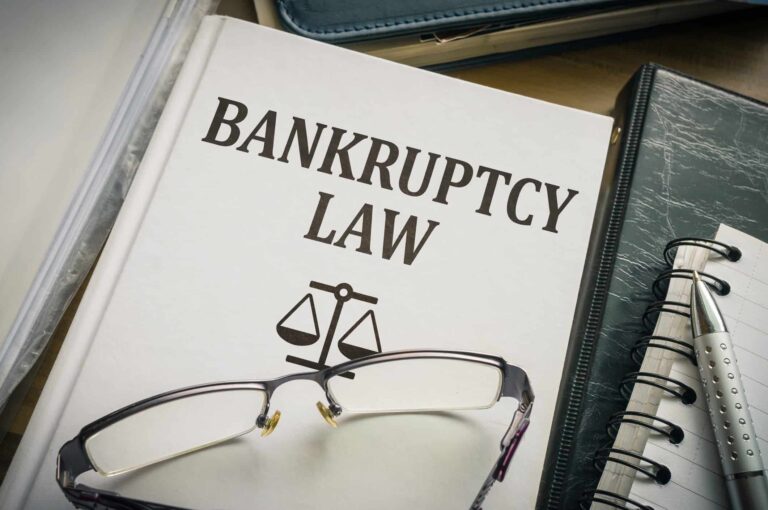Can I File For Bankruptcy After Moving To A New State?

Bankruptcy proceedings can be a complicated process to navigate. If you’re moving forward with a personal bankruptcy case, you’re not alone. In 2021, the U.S. Courts System recorded 413,616 Americans filing for bankruptcy. Filing a claim can be overwhelming in itself. But what do you do when your bankruptcy case occurs during a move between states?
If you’re planning to file for bankruptcy after moving to a new state, you may want to delay your bankruptcy filings until after you move. Every state has different laws regarding bankruptcy proceedings and understanding the laws of your old state versus your new state may make it more favorable to wait.
Working with an experienced team you can trust like the bankruptcy attorneys at Deluca and Associates can help you navigate the process confidently so that you make the best decisions for your Circumstances. Contact a bankruptcy attorney today and get the representation you deserve.
How long after I move do I have to wait before I can file for bankruptcy?
Bankruptcy law falls under the umbrella of federal law. Because of this, bankruptcy cases are handled through federal courts. Where you live determines the federal court you will need to engage with and each federal court is responsible for a specified jurisdiction. If you move, the jurisdiction the federal court has over you may change, especially if you move to a different state. Additionally, different states observe different bankruptcy exemption laws which will play an important role in your bankruptcy proceedings.
When determining how long after you move before filing for bankruptcy, you’ll want to consider the general 80-day rule and the 730-day rule. Let’s get into the weeds of what these residential time lengths mean and why they’re important to your bankruptcy case.
What is the 180-day rule and the 730-day rule?
The general rule regarding filing for bankruptcy in the midst of moving is often referred to as the 730-day rule. Under this rule, individuals are required to file for bankruptcy in the state where they lived for at least 730 days (or two years).
If an individual has not lived in a state for at least two years, then they will utilize the 180-day rule. This rule stipulates that an individual must file for bankruptcy in the state that they have lived in for the majority of 180 days — essentially 91 days.
The 180-day rule exists so that bankruptcy filers do not take advantage of state exemption laws. This keeps individuals from moving to states where the exemption laws are more favorable, allowing them to protect more of their assets, and then moving back to their home state to start a new debt-free life there.
Federal courts have no way of determining exactly when this 91-day residential time period begins, but the court will look at the information you would provide them including the residential information detailed in your official bankruptcy paperwork. You can also use documentation including a rental lease or utility statement to prove how long you have been living in the new state.
If you’re unable to wait until this 91-day time period has passed, your only other option would be to file your bankruptcy proceedings in your previous state. Navigating that path brings with it its own set of complications as you’ll need to travel back to your previous state for all of your court-required meetings.
Does it matter what state I file bankruptcy in?
Yes. Filing for bankruptcy in one state might be more beneficial than in another state because of exemption laws. Every state offers its own list of exemptions that bankruptcy filers can apply. Exemption laws detail what type of assets including property can be exempt or left out of bankruptcy proceedings. When your assets are exempt, they are essentially protected from creditors that are seeking to collect payment.
In addition to state exemption laws during bankruptcy proceedings, there are also federal exemption rules. In some states, you’ll be able to choose whether you want to apply federal or state exemptions to your bankruptcy.
Understanding the exemption laws of your previous state and the state you’re moving to is very important as it can help you protect valuable assets.
How bankruptcy exemptions work after moving to a new state
Exemption laws vary from state to state with some states, including Nevada, offering more generous exemptions than others.
When filing for bankruptcy, individuals can choose between a Chapter 7 or a Chapter 13 bankruptcy. Working with an experienced lawyer can help you determine which is best for your unique circumstances. The main difference between Chapter 7 and Chapter 13 bankruptcy is the way in which your debt repayment is resolved.
Chapter 7 exemptions
Chapter 7 bankruptcies enable filers to keep most or all of their property as long as they qualify for their state’s exemptions laws. These types of bankruptcy cases are often referred to as “no-asset cases” because individuals, when using exemptions properly, can maintain ownership over their personal assets such as a home or car.
The exemptions you can claim will determine how much of your property you can keep. Filers will have to undergo the arduous process of listing out their property and how much it is worth and then understanding exemption limits in the state to determine how much of that property can be kept.
Chapter 13 exemptions
Chapter 13 bankruptcy allows filers to keep all of their property during bankruptcy proceedings. This type of bankruptcy requires an individual to adhere to a court-approved debt reorganization plan.
While Chapter 13 bankruptcy recognizes the same exemption laws in Chapter 7, these laws are used differently. Instead of using these laws to keep individuals from losing property, these exemption laws are used as a way to determine monthly payments calculated under the debt reorganization plan.
Essentially, a monthly payment will be calculated based on income that is not exempt under the exemption laws. Once the total amount is calculated, it will be divided into monthly payments of either 36 or 60 months (or three to five years). This is the length by which the payment plan will need to be followed.
Does residency length affect bankruptcy exemptions?
The length of your residency in a state determines whether or not you’ll be able to file for bankruptcy in that state. If you are able, then you can take advantage of that state exemption laws.
Which laws will apply to my bankruptcy case?
There are unique circumstances where individuals cannot apply the 730-day or the 180-day rule. In these cases, individuals cannot take advantage of any specific state’s exemption laws but will have to rely on federal exemption laws. The disadvantage of this is that you might not be able to shield your property as collateral because some states offer more favorable exemption laws than the federal government does.
What are common bankruptcy exemptions in Nevada?
In Nevada, you must have lived in the state for a majority of the 180 days required in order to file a bankruptcy claim. In order to take advantage of the state’s bankruptcy exemption laws, you must have lived in the state for at least 730 days or two years. Nevada is one of a handful of states that offer generous exemption laws. According to Nevada Revised Statutes § 21.090, some of the more common bankruptcy exceptions in Nevada are as follows:
- Books, art, musical instruments, and jewelry up to $5,000
- Household goods, furnishings, electronics, clothing, personal effects, and yard equipment up to $12,000
- Farm trucks, equipment, and supplies up to $4,500
- Professional equipment, tools, and instruments up to $10,000
- Mining or prospecting implements and appliances up to $4,500
- A motor vehicle up to $15,000 in equity, or no limit if it is equipped for a person with a disability
- Fire department-issued vehicles and implements
- One gun or other arms required by law
- Collections of minerals, art, and paleontological remains
Nevada also extends medical exemptions including prosthesis and medical equipment that was prescribed by a physician or a dentist. These medical devices must be prescribed to either the debtor or their dependent.
If I own property, do I have to file for bankruptcy in the state where it is located?
Not necessarily. Moving forward with a bankruptcy case requires that you first determine where to file your case. As stipulated by Federal venue law, this is often your home state or where most of your personal assets including property are located. Just because you have a property in one state does not mean that is the state in which you need to file for bankruptcy. Lengths of residency and states in which you’re eligible to file will largely drive where you can file your bankruptcy claim.
Why work with a bankruptcy attorney?

Navigating bankruptcy and understanding the unique exemption laws of both your previous state, your new state, and at the federal level can be a complicated, arduous, and a lengthy process. As you move through bankruptcy proceedings, it’s common to have lots of questions regarding where you can file, the protection of your personal assets, and the projected outcome of your case.
Navigating the complexities of a bankruptcy case with an experienced law firm can help you move forward confidently. An experienced bankruptcy attorney will also help you demystify the process so that you feel like you’re regaining control of your finances.
You don’t have to navigate the bankruptcy process alone. Let the experienced bankruptcy attorneys at Deluca and Associates walk alongside you through your claim. Contact our team today to schedule your free case consultation.
Sources:
US Courts Bankruptcy Filings Drop 24% (2022)
Legal Information Institute Federal venue law: 28 U.S. Code § 1391 – Venue generally (2023)
Nevada Revised Statutes § 21.090 (2023)
Upsolve Can I Keep My Property If I File for Bankruptcy? (2023)






